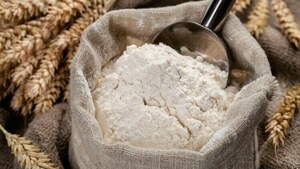World oil prices jumped higher for the second week in a row, energised by falling heating fuel stocks and colder winter weather in the United States. The Commodities Research Bureau's index of 17 commodities rose to 297.90 points on Friday at about 1700 GMT, from 294.85 points a week ago.
The index had breached 300 points on Thursday for the first time since January 3.
GOLD: The price of gold breached 660 dollars for the first time in six months, finding further support from higher crude prices and a weaker US currency. However, a rebound in the dollar on Friday prompted gold to shed most of the week's gains.
"Precious metals such as gold and silver put in a positive performance across the complex, with prices largely tracking movements in the dollar market and being supported by the firmer oil prices," said Barclays Capital analysts. Gold prices climbed in London to 661.46 dollars per ounce on Thursday, which was last seen in July 2006.
The precious metal benefits from higher oil prices because they increase the risk of inflation, which in turn increases the attractiveness of gold as a defence against the erosion of the value of money. On the London Bullion Market, gold prices firmed to 645.70 dollars per ounce at Friday's late fixing, from 645.50 dollars the previous Friday.
SILVER: Silver prices rose on gold's coat-tails. The market advanced on "aggressive fund buying," said James Moore, an analyst for specialist website TheBullionDesk.com.
Silver hit 13.78 dollars per ounce on Thursday, the best level since December 15, before pulling back on Friday after the US currency recovered. On the London Bullion Market, silver prices rose to 13.66 dollars per ounce at Friday's late fixing, from 13.22 dollars the previous week.
PALLADIUM AND PLATINUM: Prices of sister metals palladium and platinum slid. "Palladium may struggle to post further gains as speculators may use further rallies" to sell their holdings, Moore said. On the London Platinum and Palladium Market, platinum eased to 1,165 dollars per ounce at the morning fixing Friday, from 1,169 dollars the previous week. Palladium fell to 339 dollars per ounce, from 349 dollars one week earlier.
BASE METALS: The base metals complex spiralled lower, with copper, nickel and zinc in freefall as demand faltered and stocks rose.
Copper prices suffered from news of rising stockpiles in London. Nickel tumbled from its record high struck the previous week. Zinc and tin also slid from their recent peaks. On Friday, three-month copper prices sank to 5,500 dollars per tonne on the London Metal Exchange from 5,750 dollars the previous week. Three-month aluminium prices declined to 2,700 dollars per tonne from 2,777 dollars.
Three-month nickel prices fell to 37,505 dollars per tonne from 37,800 dollars. Three-month lead prices sagged to 1,660 dollars per tonne from 1,685 dollars. Three-month zinc prices plunged to 3,270 dollars per tonne from 3,601.50 dollars. Three-month tin prices dropped to 11,825 dollars per tonne from 11,950 dollars a week earlier.
OIL: World crude prices jumped to their highest levels so far this year, hitting as high as 58.85 dollars per barrel in New York, and 58.37 dollars per barrel in London.
"Prices have now recovered more than 70 percent of the losses incurred since the start of the year, and there is still potential for further upside in our view," said Barclays Capital analyst Kevin Norrish. "The flow of oil data was overall supportive this week, with the latest set of US weekly oil statistics indicating that US oil demand has rebounded strongly in January from a weak December."
Prices found further support as Opec's planned February production cut took effect, dealers said. The Organisation of Petroleum Exporting Countries, meeting in Nigeria in December, had decided to cut production by 500,000 barrels per day (bpd) from February 1, following a cut of 1.2 million bpd in November. Crude prices fell below 50 dollars a barrel on January 18 in New York, hitting their lowest levels since May 2005 owing to a sharp increase in US crude stocks and a relatively mild winter across the northern hemisphere.
However in recent weeks, heating fuel demand has been rising as freezing cold weather gripped the north-east United States, the biggest consumer of heating oil in the world, raising concerns this could deplete stockpiles. By Friday in New York, a barrel of crude for delivery in March surged to 57.45 dollars per barrel from 55.25 dollars the previous week. In London, a barrel of Brent North Sea crude for delivery in March jumped to 56.97 dollars per barrel, from 55.15 dollars.
RUBBER: Rubber prices retreated on light profit-taking. "The market is in a wait-and-see steady mood," said Corrie MacColl analyst Rashid Ahmed. On TOCOM, Tokyo's commodity exchange, natural rubber for July delivery slid to 278.10 yen per kilogramme on Friday, from 284.80 yen a week earlier. Singapore's RSS 3 April contract ended at 224.25 US cents per kilogramme on Friday, from 225.75 US cents a week earlier.
COCOA: Cocoa prices rose amid dry growing conditions in key producer Ivory Coast. "Weather in Ivory Coast's cocoa growing regions remains dry for a third consecutive week, raising concerns over future supplies," said Sucden's Michael Davies.
On the Liffe, London's futures exchange, the price of cocoa for March delivery rose to 901 pounds per tonne on Friday, from 873 pounds a week earlier. On the New York Board of Trade (NYBOT), the March contract increased to 1,650 dollars per tonne on Friday, from 1,581 dollars the previous week.
COFFEE: Coffee prices hit an eight-year peak in London on keen speculative buying, before pulling back somewhat on profit-taking. "With prices at an eight-year high, some coffee growers in Vietnam are cashing in their coffee," added Davies.
In Wednesday's trade, Robusta coffee hit 1,663 dollars per tonne - last seen February 1999. On Liffe, Robusta quality for March delivery stood at 1,601 dollars per tonne on Friday, from 1,572 dollars a week earlier. On NYBOT, Arabica for March delivery stood at 118.20 cents per pound on Friday, from 116.05 cents the previous week.
SUGAR: Sugar prices sweetened in London. "There is currently concern about tight availability of sugar ahead of the expiry of the March contract later this month," Davies added.
By Friday on Liffe, the price of a tonne of white sugar for March delivery rose to 341.50 dollars at about 1600 GMT, compared with 335.40 dollars a week earlier. On NYBOT, the price of unrefined sugar for March delivery dipped to 10.57 US cents per pound, from 10.60 US cents the previous week.
GRAINS AND SOYA: Grains and soya prices were mixed as market participants continued to keep an eye on prevailing weather conditions. "The evolution of prices will mostly depend on weather in South America because there are some forecasts of a hot and dry weather in Argentina next week which could push the prices of corn and soy bean up," said AG Edwards analyst Victor Lespinasse.
On the Chicago Board of Trade, the price of wheat for March delivery retreated to 4.57 US dollars per bushel on Friday, from 4.66 dollars the previous week. Maize for March delivery eased to 3.95 dollars per bushel on Friday, from 4.05 dollars the previous week.
March-dated soyabean meal - used in animal feed - rose to 7.24 dollars on Friday, from 7.13 dollars the previous week. On the Liffe, the price of a tonne of wheat for March delivery stood at 94.50 pounds, from 94.10 pounds the previous week.
COTTON: Cotton prices steadied in subdued trade. On the NYBOT, the March contract receded to 53.77 US cents per pound at about 1700 GMT on Friday, from 54.20 US cents the previous week. The Cotton Outlook Index of physical cotton stood at 58.90 US cents on Thursday, unchanged from a week earlier.
WOOL: The Australian wool market firmed this week, supported by strengthening demand from China. The Eastern index rose to 9.31 Australian dollars per kilo on Friday, from 9.2 dollars the previous week.
BR100
15,085
Increased By
112.5 (0.75%)
BR30
44,012
Increased By
987.7 (2.3%)
KSE100
148,618
Increased By
1274.3 (0.86%)
KSE30
45,248
Increased By
370.7 (0.83%)





















Comments
Comments are closed.